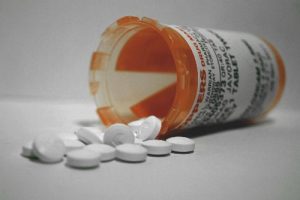Before retiring from SWBT I did root cause analysis of operational data. Interpeting data and understanding how data can be misrepresented or misinterpeted was part of my job. I’ve studied the CDC data and can find no reason to believe that a PDMP of any current state is effective at saving lives. Since Missouri without a PDMP tracks closely with the National Average death rate of 49 that have a PDMP. Clearly, PDMP has no real effect on the OD death rate and may well contribute to increased deaths as an unintended but documented consequence of increasing the OD death rate in states that implement PDMP.
There are many reasons why PDMP’s are ineffective and since we limited in time I’ll focus on just one glaring example. It starts with Medical community, they are the only ones that can prescribe these dangerous drugs. One question you should be asking every medical lobbyist and the sponsor of this bill. That question centers around the fact that all the key players say the best practice requires prescribers and dispenses to actually use the Database. They all clamor to have the database created, but balk at the idea of being required to use the database before prescribing. I was shocked while listening to the debate of this bill, when a representative who was a doctor complained that it it would increase his day by 1.5 hours to follow common sense procedures to insure their patients did not abuse the very RX they issued. The attitude displayed was his time was more important than his concern for the possible addictive effects of the drugs he giving his patients. I liken it to giving a child a loaded gun and say go outside and play. So lets, examine the result of not requiring our professionals to use the database before prescribing and dispensing. HB90 and 68 both grant no liability for using or not using the database, much like the majority of the states with PDMP.
However, in the vast majority of states, PDMP participation by prescribers is extremely low, and the effectiveness of this clinical tool is therefore compromised. A 2015 study of primary care prescribers found that while a majority reported having obtained data from their PDMP at some point in time, prescribers consulted PDMP data in fewer than one-quarter of instances when they prescribed opioids to patients.
5
In a recent review of 2015 prescribing data in a sample of states where participation in the PDMP is voluntary, prescribers checked the patient history in the PDMP only 14% of the time before prescribing an opioid.
Refer to table 3 from Florida 2016 annual report of PDMP progress. Remember that this is 5 full years after they implemented their legislation for PDMP.
Please note that only 23.69% of their medical professional’s are registered to use it. Only 17.86% of MD’s, 34.53% of DO’s and 54.5% of Pharmacists. It’s no wonder PDMP are not effective.
 LINK
LINK